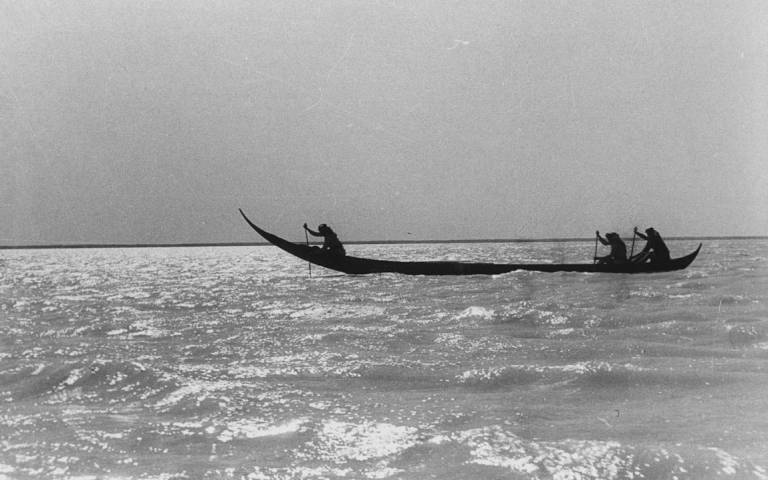Nahrein Network announces first funded research projects
14 August 2018
The Nahrein Network is delighted to announce the first projects funded by its Research Grants Awards.

These awards support interdisciplinary research on themes relating to one or more of the Nahrein Network’s five aims in fostering the sustainable development of antiquity, heritage and the humanities in post-conflict Iraq and its neighbours.
Funded projects
A Cultural Heritage Network for the Kurdistan Region: Challenges and Opportunities
Directed by Dr Saad Eskander, Dr Rozhen K. Mohammed-Amin, and Dr Alan F. Ali of Sulaimani Polytechnic University with partners at the University of Leicester and the University of Reading
The project team will establish a local cultural heritage network and centre based at Sulaimani Polytechnic University, bringing together cultural heritage stakeholders and experts from academia, the NGO sector, and policy-making, as well as the local communities. Structured and semi-structured focus groups and workshops will identify and analyse cultural heritage challenges and opportunities. A series of seminars and lectures by local and international experts will explore best cultural heritage practices, while increasing connection and interaction among the network members. The project will also involve youth capacity building and training in cultural heritage research and networking by recruiting qualified, unemployed graduates of related disciplines from local universities as paid interns. The project’s processes and outcomes can be re-used and adapted for investigating the state of cultural heritage in the rest of Iraq and similar countries.
Integrating Comprehensive, Cross-community History with Reconciliation and Heritage Protection
Directed by Dr Ahmed M. Tanash Mohaebs of Qadissiyah University with partners at the Arab Human Rights Academy
Historical sites in Iraq are places of political contest. Being able to establish historical presence in a site, and tying this to an overarching identity, allows groups to claim a space as their own. It also allows them to profit through tourism and establish international links with larger political or religious groups. This, however, can warp the historical character of a site, can lead to the destruction of historical artefacts, and can also create inter-community resentment. This project will investigate and write a comprehensive history of a politically contested shrine using documentary and oral sources from Iraqi Shia, local Iraqi and Iraqi Jewish communities. It will also recognize that the contested history of the shrine means that effective preservation requires community political mobilization from stakeholder communities. The project then also looks to the creation of a joint forum for both steering the research, so that competing narratives are negotiated and reconciled with the historical record and by both sides, and for creating and implementing an action plan for mobilizing to preserve the shrine in both its Jewish and Islamic role. The forum will prioritize sustainable development and create a model for future projects.
Post-conflict textile crafts of Iraq: scoping study of Samawah and Erbil
Directed by Dr Neelam Raina of Middlesex University with partners at Safina Projects, London; Khawla Bint Alzwar Feminist Association, Samawah; and the Kurdish Textile Museum, Erbil
This project investigates the impact of the long-standing conflict in Iraq from the perspective of the Iraqi and Kurdish craftspeople. It looks at socio-economic changes in Iraq’s craft tradition, with a special focus on the craftswomen of Samawah in the south and Erbil in the Kurdish north. This research explores the potential that crafts have, as a means of sustainable income generation, that in turn could contribute towards socio-economic reconstruction and post-conflict development. It aims to map craft heritages: particularly textile-related crafts, in order to identify existing craft practices and practitioners. The resultant analysis will document the impact of conflict and propose reconstruction-based interventions that enable the rebuilding of the craft production sector, as led and defined by stakeholders in Iraq.
Thesiger's Tarada: Using art to reconnect the archival, local, and archaeological strata of memory of Iraq's vernacular watercraft heritage
Directed by Rashad Salim of Safina Projects with partners at the Pitt Rivers Museum (University of Oxford), Basrah Museum, and Nature Iraq
Led by renowned Iraqi artist Rashad Salim, this project examines the relationship between recent Iraqi marshland boats like the tarada canoe made for Wilfrid Thesiger in 1952 and ancient boats of comparable form, known from the archaeological record. Current and recent information about Iraq’s marsh canoes—gathered through oral history work with today's marsh communities, as well as exploring Thesiger's archive—will be analysed together with available archaeological data on similar boats, aiming to shed new light on the development of a boat form and craft tradition that endured for millennia but is now endangered. Through recreation of the tarada canoe, the project aims to engage with audiences through water-based "art actions" in both Iraq and the UK and to sustain traditional craft practices into the future, through developing new uses for traditional boats in the tourism, leisure, and sports sectors in Iraq.
Applying for funding
The next round of applications opens in late August and will close on 15 November 2018. Please find details of the scheme at http://www.ucl.ac.uk/nahrein/research-grants. The Nahrein Network is funded by the UK Arts and Humanities Research Council’s Global Challenges Research Fund.
 Close
Close

